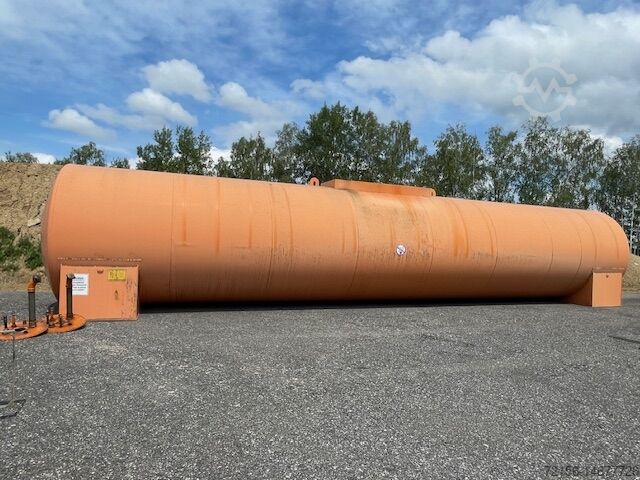Heating oil has long been a staple in many households across the United States, particularly in colder climates. It provides reliable warmth, especially during harsh winter months, and is often preferred for its efficiency and consistency. However, with the growing awareness around sustainability and the rising costs of heating oil, many homeowners are reconsidering their heating options. The transition to alternative heating methods, such as natural gas, electric heating, or even renewable energy sources like geothermal, is becoming more common. But is it always the right decision? In this post, we’ll explore the pros and cons of switching from heating oil to help you make an informed decision.
The Pros of Switching from Heating Oil
1. Cost Savings (in the Long Run)
Heating oil is known for fluctuating in price, often spiking during winter months when demand is high. This can create a financial burden for homeowners, especially those living in colder climates. The price of heating oil can vary widely depending on global oil markets, and homeowners can find themselves facing significant price hikes. In contrast, alternative heating systems such as natural gas and electricity generally have more stable prices and can offer long-term savings.
While the initial installation of a new heating system may come with upfront costs, homeowners can often recover these costs over time through energy savings. For example, natural gas is typically cheaper than heating oil in the long run, and electric heating systems (when powered by renewable energy sources) can be highly efficient. Furthermore, advancements in technology have made renewable heating options more accessible and affordable, with the potential for government incentives and rebates to help reduce the upfront cost.
2. Environmental Benefits
Heating oil is a fossil fuel, and its use contributes to greenhouse gas emissions, which exacerbate climate change. The burning of heating oil releases carbon dioxide (CO2) and other pollutants into the atmosphere, which can harm both the environment and human health. As a result, many homeowners are making the switch to cleaner, more sustainable heating alternatives to reduce their carbon footprints.
Renewable energy sources, such as solar, geothermal, and wind power, offer a much cleaner option. Geothermal heating, for instance, harnesses the Earth’s natural heat to provide warmth, while solar-powered heating systems use energy from the sun. Even switching to natural gas can be seen as an improvement, as it emits less CO2 than heating oil. For those concerned with reducing their environmental impact, making the switch from heating oil to a cleaner alternative can be a positive step toward a greener, more sustainable future.
3. Improved Safety
Heating oil requires a fuel tank, which can pose safety risks if not properly maintained. Oil spills, leaks, and the potential for fire are always a concern when using heating oil, especially if your system is aging or hasn’t been properly serviced. In contrast, systems like natural gas or electric heating are generally considered safer, as they don’t involve storing flammable materials on-site.
Natural gas is delivered through pipelines, and modern gas heating systems are equipped with advanced safety mechanisms that minimize the risk of leaks or explosions. Similarly, electric heating is virtually risk-free when it comes to fuel storage, though caution is still necessary to avoid electrical hazards.
4. Modern Heating Technology
Another advantage of switching from heating oil is access to modern, more efficient heating technology. Many new heating systems, particularly natural gas and electric systems, are designed to maximize efficiency, ensuring that homeowners use less energy while maintaining a comfortable temperature. High-efficiency boilers, heat pumps, and smart thermostats can significantly reduce energy consumption compared to older, less efficient oil-burning systems.
For example, a heat pump uses the outside air or ground temperature to heat your home, offering a highly efficient and environmentally friendly solution, as highlighted by Space Coast Daily. In contrast, older oil furnaces tend to be less efficient, meaning homeowners need to use more energy to achieve the same level of comfort.

The Cons of Switching from Heating Oil
1. High Initial Installation Costs
While long-term savings are a clear benefit, switching from heating oil to an alternative heating system can come with significant upfront costs. The installation of a natural gas furnace, electric heating system, or geothermal heat pump can be expensive. For homes that are not already connected to a natural gas line, there may also be additional costs associated with running a gas line to your property.
Geothermal systems, while incredibly efficient and environmentally friendly, are among the most expensive to install, often requiring substantial excavation work. For many homeowners, the initial investment may be prohibitive, especially if they are on a tight budget. However, it’s important to consider that there are often government rebates, tax credits, or incentives for switching to greener heating systems, which can help reduce the cost burden.
2. Limited Availability of Alternatives
While switching to natural gas or electric heating is possible in many areas, some rural or remote regions may not have easy access to these alternative heating options. Homes that are located far from natural gas pipelines, for example, may find it difficult or expensive to have a gas line installed. In such cases, homeowners may need to rely on more localized solutions, like propane, or consider costly options like installing a geothermal system or investing in large-scale solar energy.
In these situations, homeowners may find it difficult to fully abandon heating oil, especially if no viable alternative exists within a reasonable budget. Additionally, electric heating systems can be more expensive to run if the electricity in your area is not generated from renewable sources.
3. Potential for Lower Heating Capacity
While modern heating systems are generally more efficient, some alternative systems may not have the same heating capacity as oil systems, particularly in extreme cold conditions. Oil heating systems are known for their ability to generate intense heat quickly, which is why they are commonly used in colder climates. In contrast, electric heating systems or heat pumps may not be as effective in maintaining consistent warmth during extremely cold weather.
For homeowners living in regions with very harsh winters, switching from heating oil to a less robust system may result in discomfort or the need for additional heating sources, which could negate any savings.
4. Dependence on Utility Providers
When switching to natural gas or electric heating, homeowners become more dependent on utility providers for their heating needs. Natural gas prices are often more stable than oil prices, but they can still fluctuate. Similarly, electricity costs can vary depending on the source of the electricity and the region. If you choose to rely on electric heating, you may find that your utility bills increase during peak usage times, especially if you live in an area with high electricity rates.
With heating oil, homeowners can purchase their supply in advance and store it for use throughout the winter, giving them more control over fuel costs. This level of independence is lost when switching to other forms of heating that require a constant supply from an external provider.
Conclusion
Switching from heating oil to an alternative heating system comes with both pros and cons. On the positive side, homeowners can potentially save money in the long run, reduce their environmental impact, improve safety, and take advantage of modern heating technologies. However, the high upfront installation costs, limited availability of alternatives, potential for lower heating capacity in extremely cold climates, and dependence on utility providers are significant considerations.
Before making a decision, homeowners should carefully evaluate their specific needs, budget, and long-term goals. Whether you prioritize sustainability, cost savings, or reliability, there is a wide range of heating options available. Consulting with a heating professional or energy advisor can help ensure that you choose the best system for your home, ensuring comfort, cost-effectiveness, and peace of mind for years to come.





